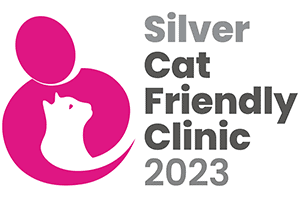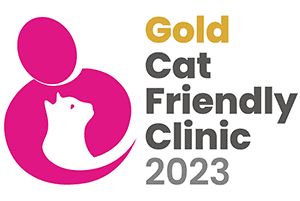Infectious diseases in the UK
Infectious diseases once killed thousands of pets each year.
Thankfully veterinary science has advanced significantly, and these killer diseases can now be vaccinated against.
Although vaccination has not eradicated infectious diseases completely, it has dramatically reduced the frequency of these diseases and therefore saved many lives.
What is a vaccination?
Like all animals, your rabbit has an immune system which is the body’s natural ability to fight infection. Vaccination works by exposing the body to a small but entirely harmless dose of the disease in question. The rabbit’s immune system then reacts by producing a defence and can cleverly “remember” how to defend against the disease again. This “memory” will however fade in time, increasing the risk that the rabbit’s body cannot put up a strong enough defence. Vaccination reminds the rabbit’s immune system how to defend against the disease again.
What diseases can we vaccinate against?
Myxomatosis - This common well-known disease is caused by a pox virus that only infects rabbits. Originally only found in South America, it was illegally imported into France in 1952 to control the wild rabbit population, a year later it reached the UK. It has been a threat to both wild and domestic rabbits ever since. Symptoms include puff swellings around the eyes, mouth, inside the ear and genitals. The swelling can eventually lead to blindness and difficulties eating and drinking. Infected rabbits often suffer respiratory complications also with fatal consequences. Sadly, even with intense treatment, very few rabbit recover and euthanasia is recommended. The disease is typically transmitted by blood-sucking parasites like fleas which means whatever lifestyle pet rabbits have they are susceptible to myxomatosis.
Viral haemorrhagic disease (VHD)* is a viral disease which can cause death before any outwardly signs are shown. There are two strains of the disease, VHD1 (which has been in the UK for decades) and a new strain which has come over from the continent VHD2.
Both variants are spread by direct contact between rabbits and also via indirect contact such as people, clothing, shoes, feeding bowls, fleas and biting flies. Most infected rabbits will only survive 12-36 hours showing only a short period of dullness and lethargy. If they survive longer signs include lethargy, rapid breathing, fever, convulsions and rapid deterioration into a terminal coma.
Note about VHD2. Scientists are still analysing this new strain of the disease and studies are ongoing. In light of this we recommend vaccination for both indoor and outdoor rabbits.
Protecting your rabbit
It is worth remembering that the diseases we vaccinate are killers, vaccination dramatically reduces the risk of disease for your rabbit. To fully protect your rabbit, two vaccinations are needed annually. “Myxo-RHD” is a combination vaccine giving improved protection against myxomatosis and VHD1. Vaccination is possible from 5 weeks of age. Cromwell Vets have secured an import license to also be able to offer “Filavac” which provides protection from VHD2, (this can be done from 10 weeks old). It is recommended to vaccinate against VHD2 every 6 months for breeding and show rabbits. We also recommend regular flea and fly control treatments as both diseases can be transmitted through these blood-sucking parasites. Dry bedding will also discourage flies.
* also known as Rabbit Haemorrhagic Disease (RHD)
Parasites
Flystrike is a condition in which flies are attracted to a dirty bottom due to the smell and moist environment. They lay their eggs, which hatch out into maggots. These then burrow into the rabbit’s skin. This is a serious condition that requires immediate emergency treatment from the veterinary surgery. It can happen any time of the year but is far more common in warmer weather. A rabbit’s bottom should be checked at least twice daily to ensure it is clean. This should be done more frequently during the summer months and specialist products can be used to repel flies.
Biting flies, fleas and mites can be a nuisance to rabbits and can spread disease. Luckily, they are not seen very often with rabbits, and therefore treatment with specialist products is done as and when needed. Signs to look out for include your rabbit pulling out fur, scratching incessantly or showing flaky skin - if you are concerned please bring them to see the Vet for an examination and appropriate treatment if required.
Internal parasites can also be a health concern in rabbits. This includes worms and a single-celled parasite called Encephalitozoon Cuniculi (E. cuniculi). This is spread through contaminated urine and can cause partial or complete paralysis, kidney and eye diseases and can lead to death. Please speak to our Vets and Nurses about internal parasite prevention and treatment.
Neutering
We recommend neutering male and female rabbits for both behavioural and health reasons. Aggression is common in un-neutered rabbits of both sexes, and this can be directed towards other rabbits and other species (including you!). Neutered rabbits are generally calmer, more affectionate and easier to manage, making for a more amenable family pet.
Neutering (or spaying) female rabbits involves surgically removing the ovaries and uterus under general anaesthetic. It will not only calm their demeanour but also prevent unwanted pregnancies and uterine cancer (relatively common - around 80% of unneutered females develop uterine cancer by the age of five). Female rabbits can be spayed from four months of age but are sexually active before this age. For this reason, care must be taken if mixing un-neutered males and young female rabbits together, if unwanted pregnancy is to be avoided.
Neutering (or castrating) male rabbits involves surgically removing the testicles under general anaesthetic. As well as a reduction of aggressive behaviour, neutering also stops territorial urine spraying. Males can be castrated from four months of age but can still be fertile for four weeks after the procedure therefore you must be careful with unneutered females in this time.
Is it safe? General anaesthetic with any animal carries risk and in the past rabbits have gained a reputation of being difficult to anaesthetise. However, as veterinary medicine has progressed, the risk has been reduced significantly. Risk is reduced further when the rabbit is young and healthy. For this reason (in addition to the above reasons) we advise to neuter rabbits when they are young.
Diet
Diet is one of the most important parts of rabbit’s health. If rabbits are fed incorrectly, many health issues can arise. Please read our factsheet on rabbit diet. It is important for rabbits to have regular health checks at the veterinary practice to ensure they are healthy and to recognise any potential health problems. If you have any questions about your rabbit, we invite you to book a free appointment with our clinic nurses.




